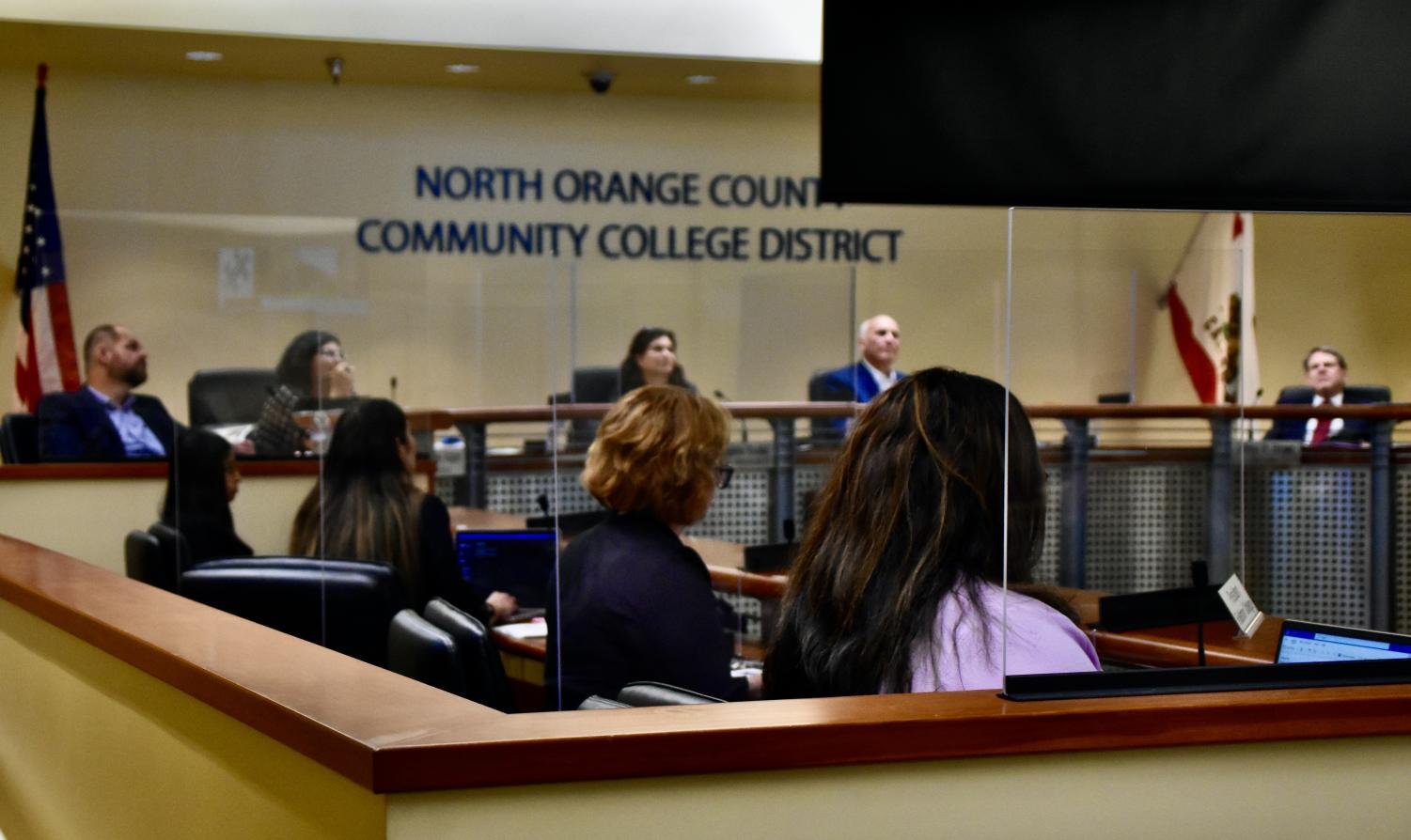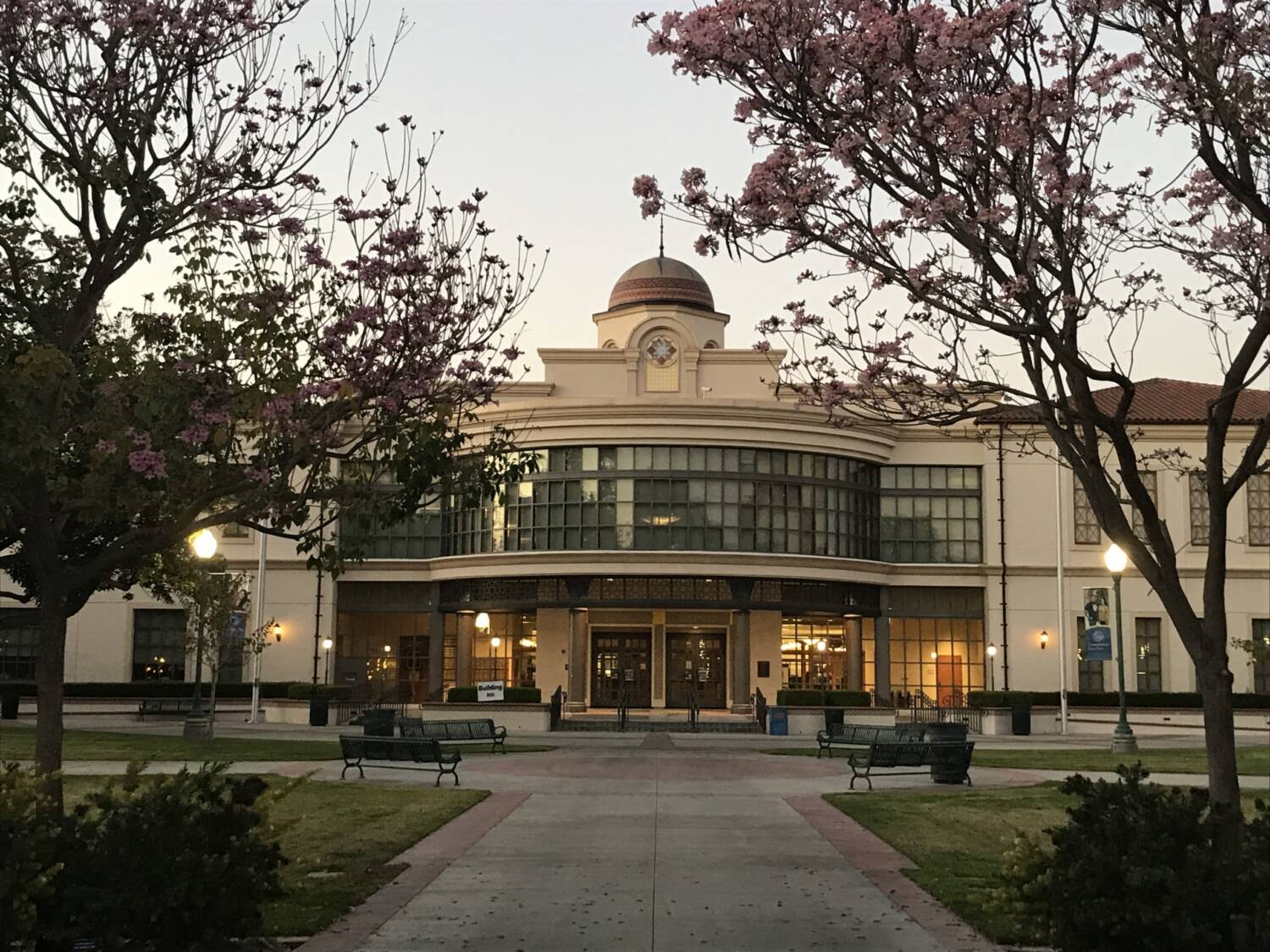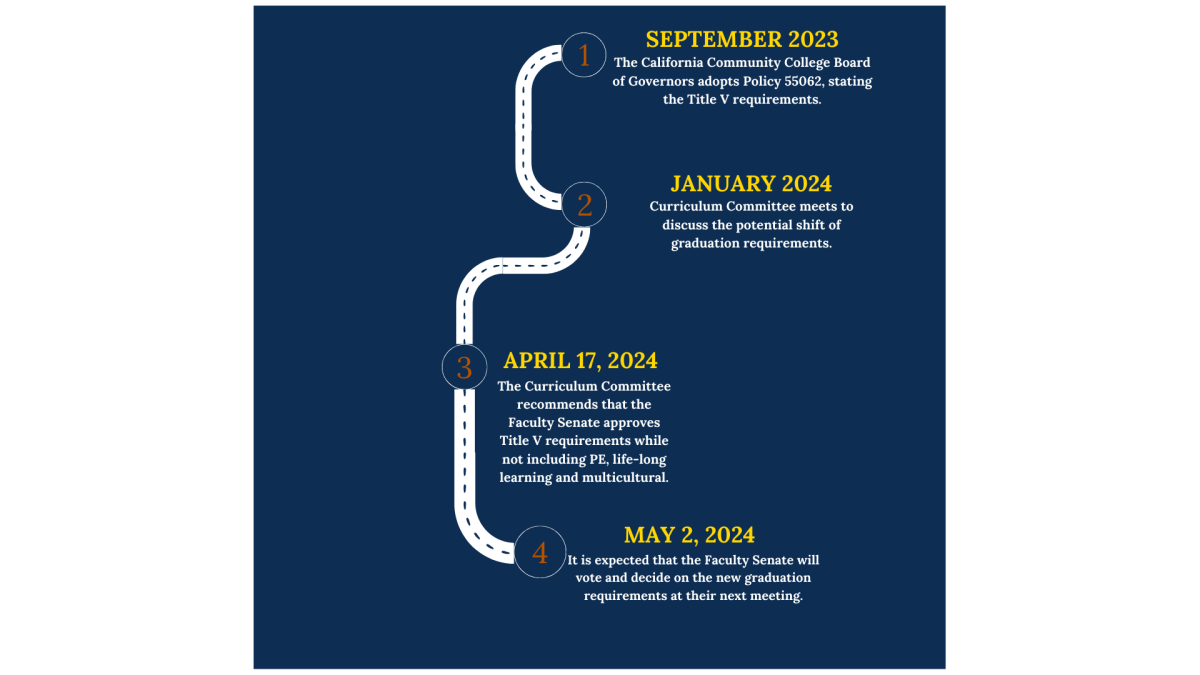Associate degree requirements: The topic dividing Fullerton College

Fullerton College’s Faculty Senate will discuss whether or not to change the associate degree requirements at its meeting on Thursday, May 2. Emotions have been running high throughout this process between faculty and students. There are talks about the potential loss of adjunct faculty jobs, a drop in enrollment, and a divide between faculty on opposing sides of the matter.
What does this mean and how will students be affected by this in the long run? This article breaks down what the current requirements are, what Faculty Senate’s Curriculum Committee is proposing, and how this could change student life and education at FC.
In September 2023, the California Community College Chancellor’s Office Board of Governors approved a proposal that changes the graduation requirements for associate degrees. This allows community colleges in California to set the graduation requirements for their own degree programs as long as the minimum Title 5 requirements are met.
With this change, colleges can choose whether to require only the minimum state requirements or keep additional courses. Title 5 refers to the minimum requirements that a student has to meet in order to graduate with an associate degree. These requirements were set by the CCC Board of Governors and can only be changed by the board.
Colleges across the state are now deciding, should they use only the minimum Title 5 requirements, or more?
The Title 5 requirements include: English composition, oral communication and critical thinking, mathematics and quantitative thinking, arts and humanities, social and behavioral sciences, natural sciences, and ethnic studies. In 2020, an ethnic studies requirement was added for CSUs by the California State Legislature. In 2021, the CCC Board of Governors followed suit by adding the requirement for students seeking an associate degree to take an ethnic studies class.
These are different from the Associate of Degree for Transfer (AA-T) and certificate program requirements.

In order for students to earn an associate degree, they have to complete a total of 60 units in their major, general education and electives.
Fullerton College’s current associate degree requirements include the minimum Title 5 requirements, which can be found on the NOCCCD catalog, along with courses in three additional areas: physical education, multicultural, and lifelong learning and self development.
According to the 2023-2024 Fullerton College Catalog, students must take one 3-unit class in each of the following areas to fulfill the associate degree general education requirements:
- Written communication
- Analytical thinking
- Physical and life sciences
- Mathematics
Additionally, they must take a 3-unit course in four of the five following areas:
- Visual arts, music, theater, and dance
- Literature, philosophy, religion, and foreign language
- Social, political, and economic institutions
- Theory and research in individual and group behavior
- Lifelong learning and self-development
In addition to those 24 units of GE requirements, they must also take a 1-unit P.E. class and a 3-unit multicultural education class, which fulfill graduation requirements. That multicultural requirement, which has been in place since 1996, can also be applied toward their major or general education requirements.
On Wednesday, April 17, the Curriculum Committee recommended that the college only require the minimum Title 5 requirements, leaving out the three additional requirements of physical education, multicultural, and lifelong learning and self-development.
Curriculum Committee chair John Ison said in a statement that the proposed requirements came from five months of discussions.
“The committee heard from faculty from virtually every division. We welcomed public comments, statements, even a petition,” said Ison in his statement. “At the risk of complication, confusion, even chaos, the curriculum committee encouraged freedom of speech… to allow a free exchange of ideas.”
Most of the Curriculum Committee agreed that general education requirements should be simplified, stating that the associate degree should be streamlined and align with the California public universities.
Some professors argue for the exclusion of the three course areas, leaving only Title 5 required for an associate degree, saying that students have enough on their plate already.
“We work on a 60 unit system, so the biggest problem with all of this is when courses go from four units, to five units, to six units. We didn’t add the number of units that you need to graduate. That never changed,” explained Fullerton College business professor Gary Graves, who said that anything more than Title 5 requirements is too much. “If we adopt the new Title 5 standards, that means it’s not just 21 units that you’ll do for your general education. When you look at the range of courses, it’s really 21 to 32 units.”
Graves is explaining what he calls “unit creep.” This is when the amount of units students must take for their major(s) combines with their general education requirements, stacking up and leaving no room for students to explore fields and electives that interest them.
“If you’re a student who hasn’t decided what you want to do in life, electives are very important. You can go try out psychology. You can go try out business. You can go try out all the things that we offer, and we offer a lot,” said Graves. “Without those electives, you really kind of have to know what it is you want to do.”
Fashion professor Rachel Nevarez went further, saying that students often look for the easier paths to reach their degrees. “Anything that reduces the time that the student is in the class, or reduces the amount of time that they have to take a class over and over again, I think is beneficial for us in the long-run,” said Nevarez.
Nevarez argues that the instructors should focus on what the students want.
“If you are servicing the students and giving them what they want, they are going to come back,” said Nevarez.

There have also been professors and staff in favor of leaving the current requirements in place. Many professors from P.E., multicultural, and lifelong learning and self-development have voiced concerns on what the ramifications are if the Curriculum Committee’s recommendation passes through the Faculty Senate.
Fullerton College men’s basketball coach Perry Webster explained that if the P.E. courses aren’t required, a lot of his department’s classes will not get filled and in turn be cancelled.
“The biggest thing is it is going to affect our marginalized students. It is going to affect our DSS students, veteran students, African American students, Hispanic students, and the populations we are trying to serve,” said Webster. “We are not going to be able to provide settings for them to move and be outside. Overall, we think it’s a big physical, mental and emotional health barrier that we’re really trying to save in these programs.”
Professor and co-chair for the geography and the environment department Aline Gregorio expressed her department’s opposition for taking off the multicultural requirement. “Multicultural educators came together almost unanimously to… detail why it is important to continue and then adapt our local requirement to promote a globally oriented education,” said Gregorio.
She explained that while the implementation of ethnic studies is a “huge victory,” Title 5 requirements alone do not allow students to learn about what is happening around the world. She added, “I cannot help but to feel despair.”
Counselor and Secretary of Faculty Senate Heather Halverson said that lifelong learning and self-development has helped students to feel more motivated in their classes and made their college experience more enjoyable.
“The same few weeks that I’m in meetings listening to people devalue what I do as a counselor and the courses that I teach, I’m meeting with students that are saying ‘I’m so glad I took this class because now I know more about my major.’ ‘I feel like I’m able to succeed.’ ‘I feel super motivated about school.’ All these students are telling me this, and then I go to a meeting and hear, ‘But what you teach really isn’t valuable,’” said Halverson.

Any member of the Hornet community can attend public meetings and voice their concerns. You can contact Faculty Senate to express your opinion on this matter, or show up and speak in the public comments portion at the beginning of their meeting on Thursday, May 2 at 3 p.m.
Once the decision is voted on, it will then move to the NOCCCD Board of Trustees, where they will then decide the final plan of action. This is another meeting that anyone in the public can show up to. You can contact the members of the board to voice concerns, or show up to their meeting that will be determined at a later date.







